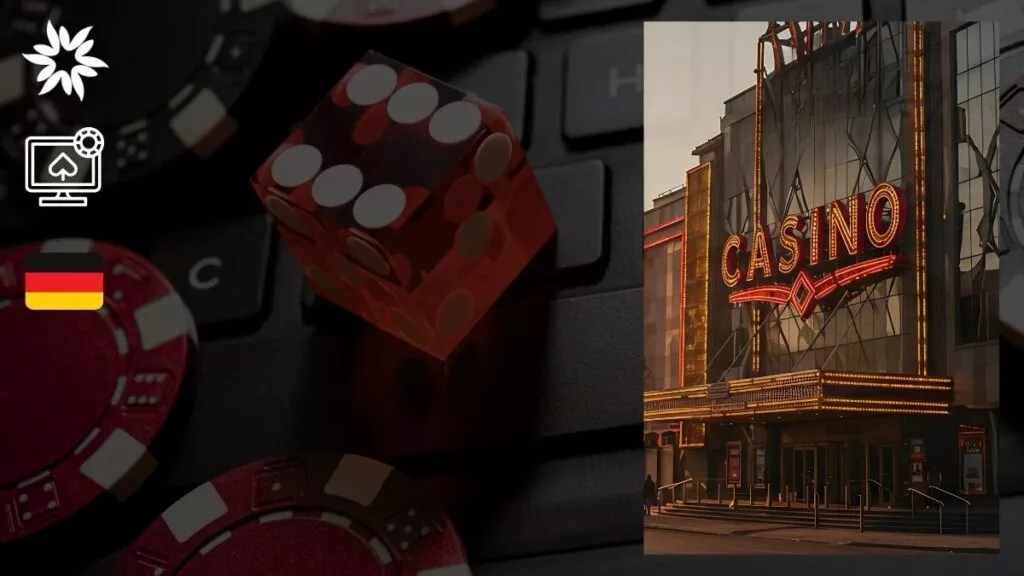Not all glitzy poker faces and Vegas montages make the cut. When you talk about the best gambling movies of all time, you’re not just talking about big wins — you’re talking about obsession, loss, addiction, and the strange hope that maybe this time, luck might actually hold.
Sure, Hollywood loves to dress it up with champagne and tuxedos, but the real gambling films — films-the ones that leave a mark—are messier, riskier, and painfully human.
This is a look at the rare movies that didn’t just capture the glamour of the gamble — they caught the heartbreak too. And in doing so, they landed closer to the truth than most dare to get.
1. Rounders (1998)
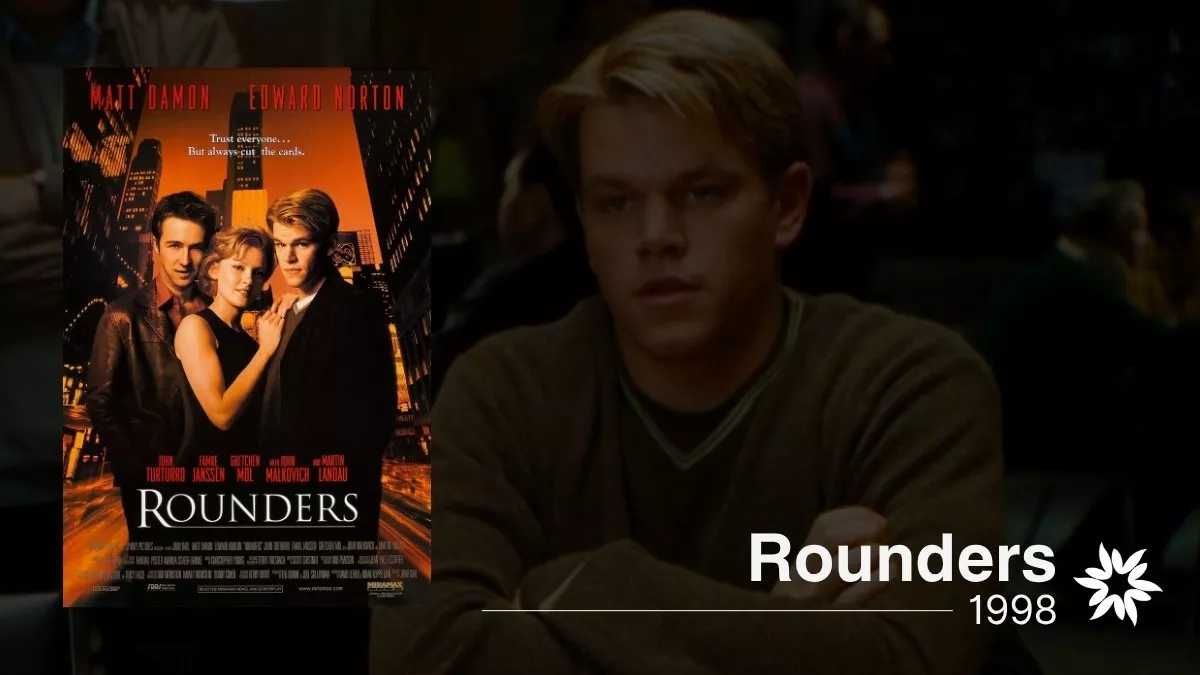
If you’ve ever wondered why Rounders is practically gospel in poker circles, it’s because this film doesn’t just flirt with authenticity — it lives in it. Directed by John Dahl and starring a young, hungry Matt Damon, Rounders dives straight into the gritty, smoke-laced rooms where fortunes change hands on the turn of a card.
What sets it apart isn’t just the high-stakes drama (though there’s plenty of that), but the obsessive attention to detail. We’re talking about real sleight-of-hand techniques — the false shuffle, the mechanics grip — being woven seamlessly into the story. These aren’t Hollywood fabrications; they’re genuine tools of the trade that pros and cheats alike have used for decades.
The film also captures something even trickier: the psychology of poker. It’s not just about the cards you hold; it’s about reading the room, knowing when someone’s bluffing because their hands twitch, or when a smile is hiding a second mortgage’s worth of desperation. According to four-time World Poker Tour champion Darren Elias, Rounders remains one of the few movies that actually “gets” what it feels like to sit at a table where the stakes aren’t just money — they’re pride, survival, and sometimes even freedom.
Another thing Rounders nails is the atmosphere. The film feels almost sticky — you can practically smell the stale beer and cold sweat hanging in the air. It’s a world where the players aren’t glamorous millionaires but desperate grinders trying to claw their way out of debt, or deeper into it.
More than two decades later, Rounders still resonates because it respects the game. It knows that poker isn’t about glamour; it’s about grit. And that’s why, for anyone who knows a river card from a brick, this movie still feels dangerously, exhilaratingly real.
2. Casino (1995)
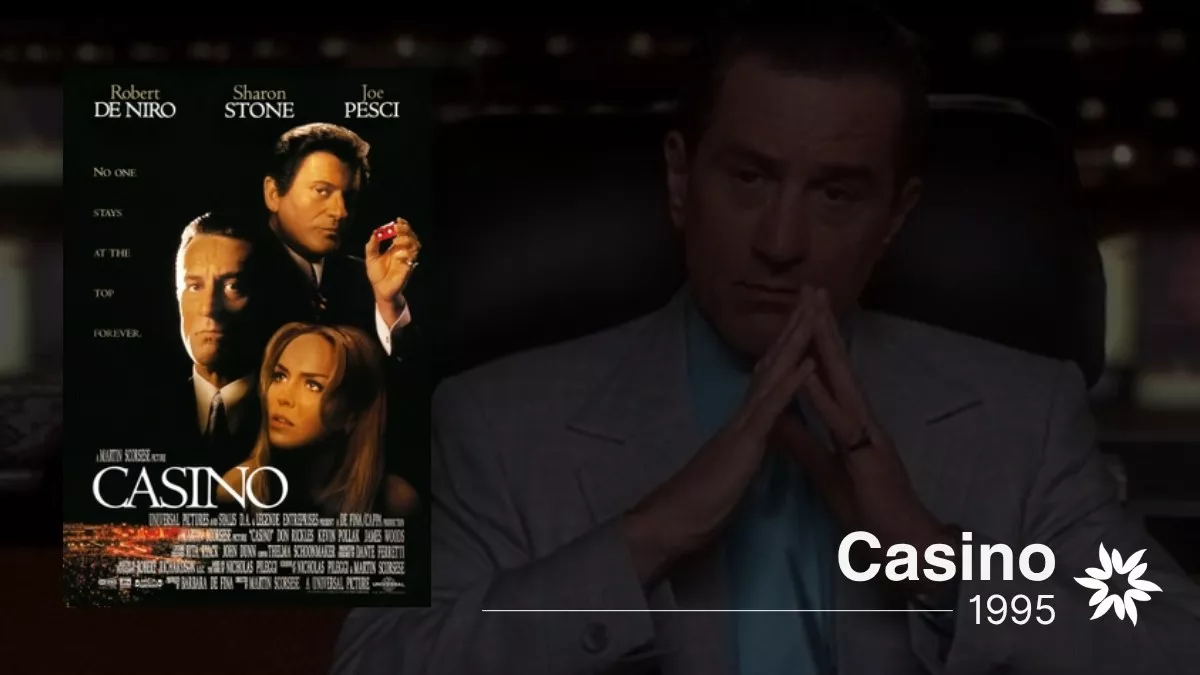
When Martin Scorsese turned his lens toward Las Vegas in Casino, he wasn’t interested in the bright lights or the kitschy glamour. He went straight for the jugular — the greed, the violence, the brutal machinery behind the spectacle.
Set in the 1970s, Casino strips away the Vegas fantasy and shows the city for what it was (and still often is): a blood sport disguised by neon and sequins. Robert De Niro plays Ace Rothstein, a meticulous casino manager based on the real-life figure Frank Rosenthal, who ran the Stardust and other mob-controlled casinos. Joe Pesci, as the explosive enforcer Nicky Santoro, reminds us that in Vegas, business disputes often ended with baseball bats, not board meetings.
Where Casino really nails it is in its obsession with the mechanics. Scorsese dedicates entire scenes to the logistics of skimming profits — hidden cash rooms, manipulated slot machines, “thumpers” (little devices cheaters used to tilt the odds at craps tables). It’s almost procedural in its detail, and that’s no accident. According to Nicholas Pileggi, who co-wrote the script and authored the book the film is based on, much of it was pieced together directly from FBI files and court testimony.
And it’s not just the methods that ring true — it’s the culture. Casino shows how trust was weaponized, how paranoia wasn’t a glitch but a survival tool. Every comped drink, every friendly handshake had an angle. Nothing in Scorsese’s Vegas was free — and that’s probably the most honest thing anyone’s ever said about the place.
Nearly 30 years after its release, Casino still feels sharp because it refuses to romanticize the house. It reminds you who really wins when you walk onto a casino floor — and spoiler: it’s not you.
3. Molly’s Game (2017)
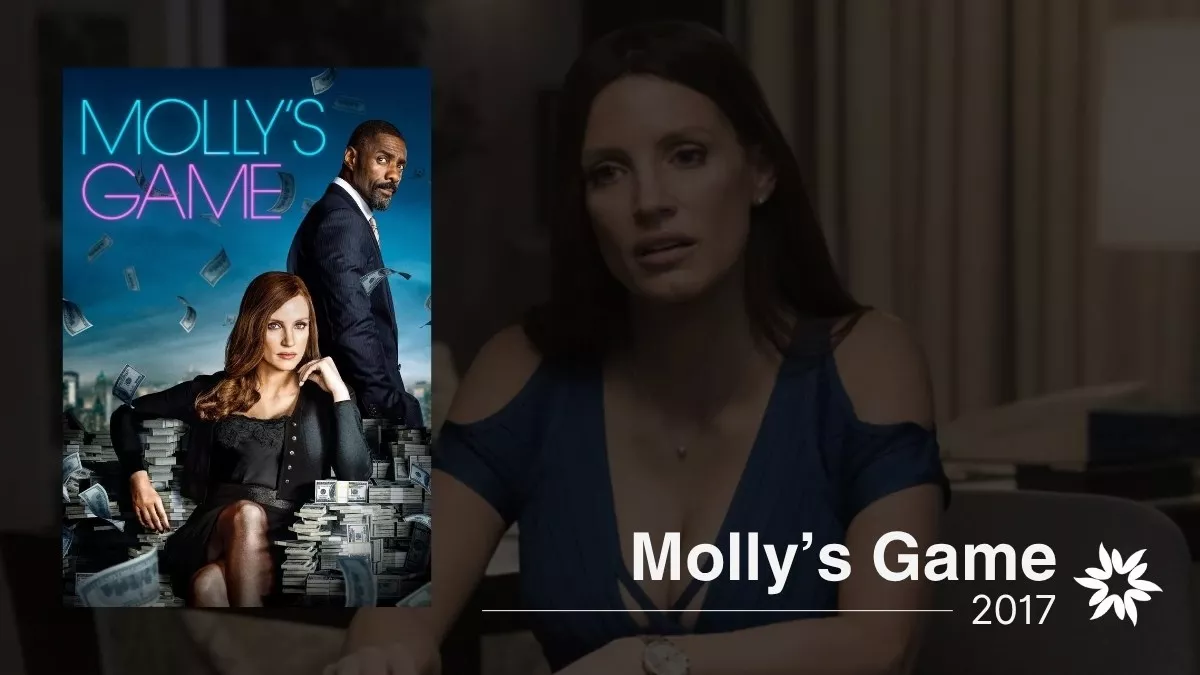
Molly’s Game isn’t your typical poker movie — and Molly Bloom isn’t your typical poker hostess. Based on Bloom’s memoir, the film directed by Aaron Sorkin dives into the adrenaline-soaked, secretive world of underground poker games where billionaires, A-list actors, and Wall Street sharks all sat shoulder-to-shoulder chasing the rush.
Jessica Chastain doesn’t just play Bloom; she inhabits her. Smart, driven, and constantly two steps ahead, Bloom builds an empire by mastering the delicate dance of catering to egos while enforcing absolute control. It’s not just about dealing cards — it’s about reading rooms, managing power plays, and knowing exactly when to lean in or walk away. As FAULT Magazine noted, the movie succeeds because it captures “not just the glamour, but the cost of staying at the top”.
Poker itself is treated with rare respect. Sorkin doesn’t dumb it down for the audience, but he doesn’t bury them in jargon either. The film shows the mechanics of high-stakes poker — the slow burns, the strategic bluffs, the psychological warfare happening with every chip tossed into the pot. According to professional poker consultant Josh Leichner, who advised on several scenes, “the tension at the table is as real as anything you’d find at the World Series”.
But Molly’s Game isn’t really about poker — it’s about control. Control over chaos, over greed, over the constant temptation to push just a little further until everything collapses. And that’s what makes it one of the rare gambling movies that feels less like a fantasy, and more like a true confession whispered at 3 a.m., long after the cards are back in the box.
4. 21 (2008)
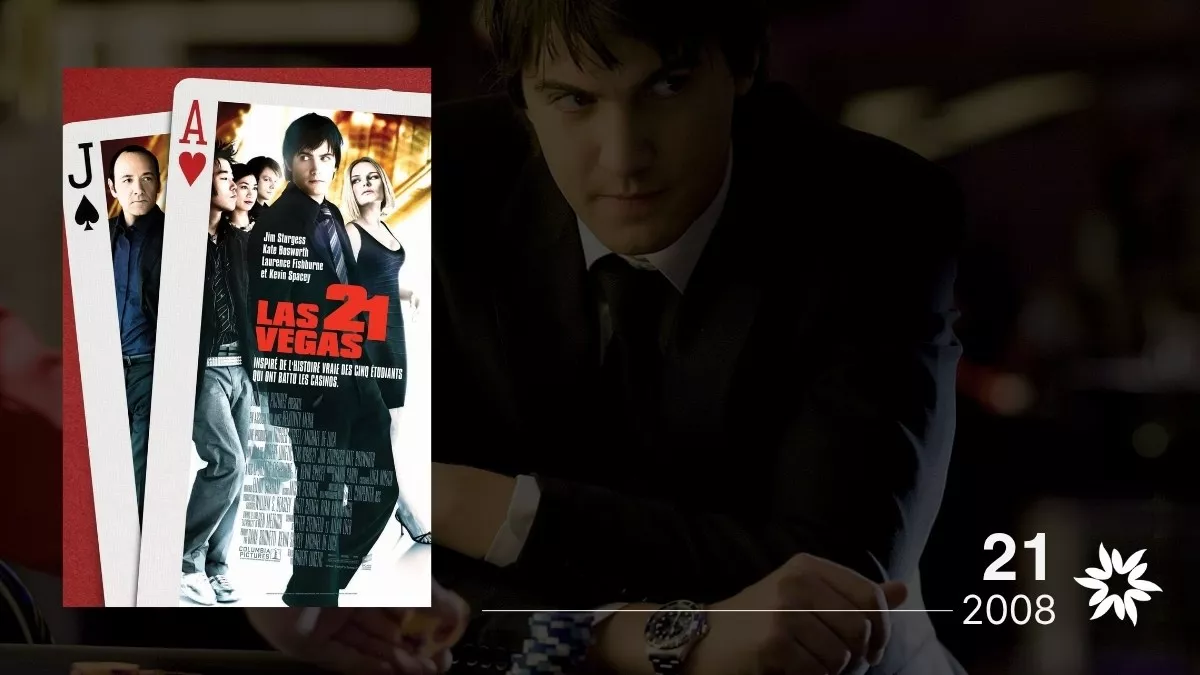
There’s something irresistible about the idea: a handful of brilliant college kids walking into Las Vegas and beating the house at its own game. That’s exactly what 21 delivers — and for once, the story isn’t Hollywood fiction. It’s based on the very real (and very clever) exploits of the MIT Blackjack Team.
Directed by Robert Luketic, 21 follows a group of students who used card counting — a method that’s completely legal but heavily frowned upon by casinos — to rake in millions during the ’90s. The film lays out the basics with surprising clarity: it’s not magic, it’s math. Plus-minus systems, team signals, deck penetration — these are real techniques that serious players still study today.
Of course, 21 takes its fair share of liberties. It amps up the drama with backroom confrontations and fistfights that, according to former team members, never actually happened. Jeff Ma, one of the real MIT players whose life inspired the film, told USA Today in a 2024 interview that while the film “got the essence right,” it definitely “cranked up the Hollywood” for effect (USA Today, 2024).
Still, the heart of 21 — the planning, the pressure, the team dynamics — feels rooted in something honest. It captures the heady thrill of outsmarting the system, but it also shows how quickly that thrill curdles into greed, paranoia, and betrayal. Not every jackpot comes without a price.
And if you’re wondering whether you could pull it off yourself after watching, don’t bet on it. Casinos today are hyper-vigilant against card counters, deploying facial recognition, pit bosses, and continuous shuffling machines. The house, it turns out, always learns.
5. Croupier (1998)
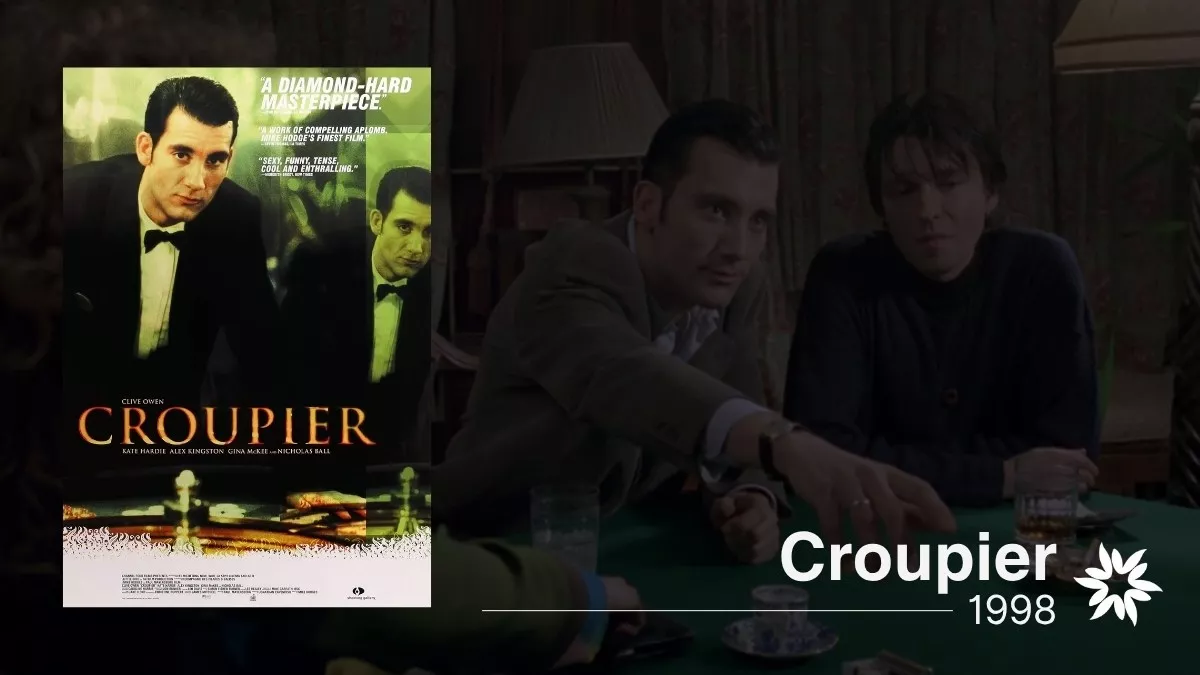
Most gambling movies throw you into the player’s seat, all adrenaline and wild bets. Croupier does something smarter — it walks you around to the other side of the table and makes you deal.
Directed by Mike Hodges, Croupier isn’t flashy. There are no oceans of cash, no glamorous heists. Instead, the film follows Jack Manfred, played with razor-sharp coolness by Clive Owen, a struggling writer who takes a job as a casino dealer and slowly finds himself pulled into the seedy gravity of the gambling world. Jack doesn’t gamble himself — at least not with cards — but you quickly realize he’s making dangerous bets with everything else in his life.
What makes Croupier so unnervingly good is how accurately it captures the psychology of the casino floor. Players, lost in hope and desperation, believing the next spin, the next hand, the next miracle is coming. Dealers, trained to stay detached, quietly watching the slow unraveling of humanity, hand after hand after hand. As film critic Philip French once put it, the movie “shows the casino not as a glamorous playground, but as a bleak machine for grinding hope into dust”.
There’s also the film’s aesthetic — a slick, hard-edged noir style that feels more Chandler than Vegas. Dark hallways, cigarette smoke, muted colors. It’s a world where luck is just another lie we tell ourselves to feel in control.
Interestingly, when Croupier was first released in the U.K., it barely made a dent. It wasn’t until it crossed over to the U.S. that it became a cult hit, especially among real-life dealers and gamblers who recognized its unvarnished truth. For anyone who’s ever wondered what it’s like to be the one flipping the cards — not chasing luck, but watching it die — Croupier is your movie.
6. Owning Mahowny (2003)
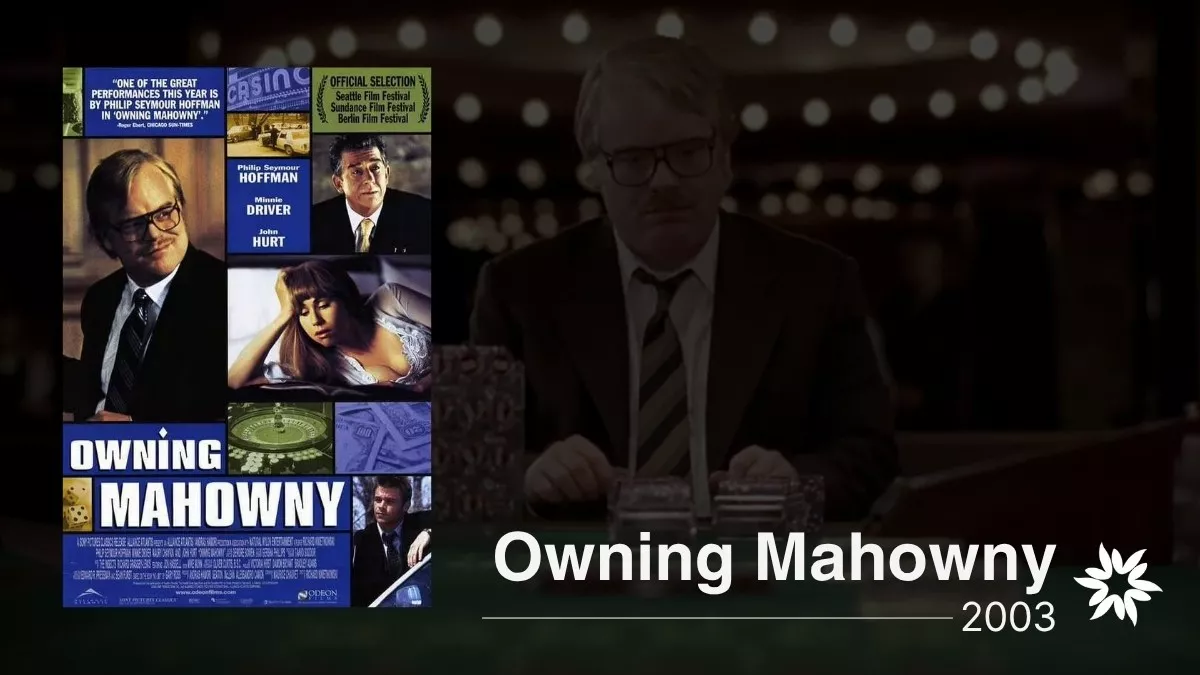
If most gambling movies are about chasing fortune, Owning Mahowny is about chasing oblivion.
Based on a true story that’s almost too bleak to fictionalize, the film stars Philip Seymour Hoffman as Dan Mahowny, a mild-mannered Canadian bank manager who secretly embezzles millions to feed his spiraling gambling addiction. There are no glitzy Vegas showdowns here. No euphoric wins. Just a slow, suffocating slide into personal ruin — and that’s what makes it one of the most honest films ever made about gambling.
Hoffman’s performance is devastating precisely because it’s so restrained. He doesn’t play Mahowny as a wild-eyed maniac but as a quiet, painfully ordinary figure — the kind of guy you wouldn’t look at twice. As Hoffman himself put it in a 2024 retrospective interview reprinted by The Globe and Mail, “Mahowny wasn’t trying to win. He was trying to disappear” (The Globe and Mail, 2024).
The casinos in Owning Mahowny aren’t temples of possibility; they’re clinical, predatory, almost surgical in how they bleed him dry. One of the most chilling aspects of the film is how casino managers, fully aware of Mahowny’s problem, deliberately enable his addiction, comping rooms, sending gifts, and ensuring the tap stays open until it runs completely dry.
Critics have long praised Owning Mahowny for refusing to glamorize the disease it depicts. According to a 2025 analysis by the Responsible Gambling Council, media portrayals of gambling addiction often skew romantic or sensationalized; Owning Mahowny remains a rare exception, showing addiction not as an epic battle but as a grinding, joyless compulsion (Responsible Gambling Council, 2025).
It’s a tough watch, but an essential one. Because sometimes, the most brutal gamble isn’t at the table — it’s thinking you can walk away at all.
7. California Split (1974)
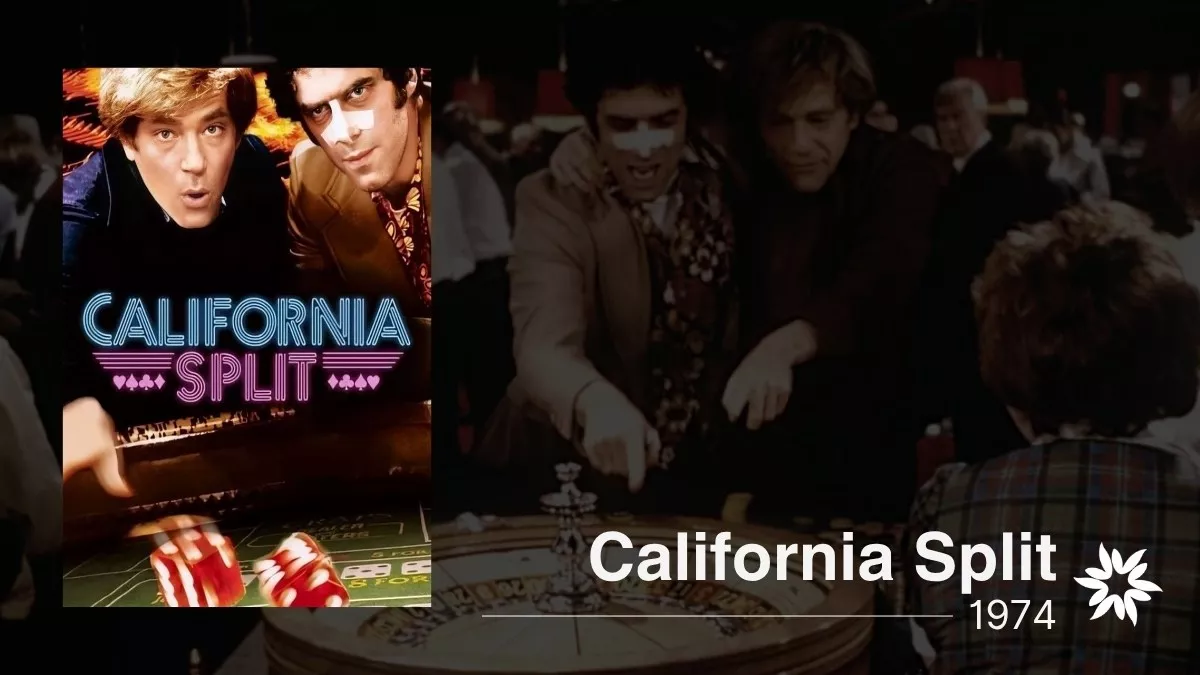
Some movies are about winning. California Split is about chasing — the next big score, the next big rush, the next big disaster waiting just around the corner.
Directed by Robert Altman at the peak of his powers, California Split doesn’t just dip into the gambling world — it soaks in it. The film follows two drifting souls, played by Elliott Gould and George Segal, as they hustle their way through poker rooms, racetracks, and seedy dive bars, riding the manic highs and crushing lows that only gamblers know too well.
Altman’s signature improvisational style is all over this film. Dialogue overlaps, scenes wander without a clear endpoint, characters mumble and ramble, and lose themselves mid-sentence. And that’s exactly the point. Life for habitual gamblers isn’t a neatly structured three-act drama; it’s a chaotic, sweaty, sometimes hilarious mess. As film critic Matt Zoller Seitz pointed out in a 2024 essay, “California Split captures the jittery energy of people who don’t just gamble with money — they gamble with themselves, every day”.
There’s no big moral hammer waiting to drop, no forced life lesson about addiction or redemption. Instead, Altman offers something much harder to pin down: a feeling. The exhilarating, sick-making, strangely addictive sensation of living on the edge of disaster — and loving it.
The film has earned a loyal cult following over the decades, especially among real gamblers who recognize the authenticity bleeding through every frame. In fact, professional poker player and writer James McManus called California Split “the most honest gambling film ever made” in his 2025 reappraisal for The Atlantic.
In a genre often obsessed with glamorizing risk, California Split reminds you: the real thrill isn’t winning. It’s the gamble itself — even when you know you’re going to lose.
8. Tazza: The High Rollers (2006)
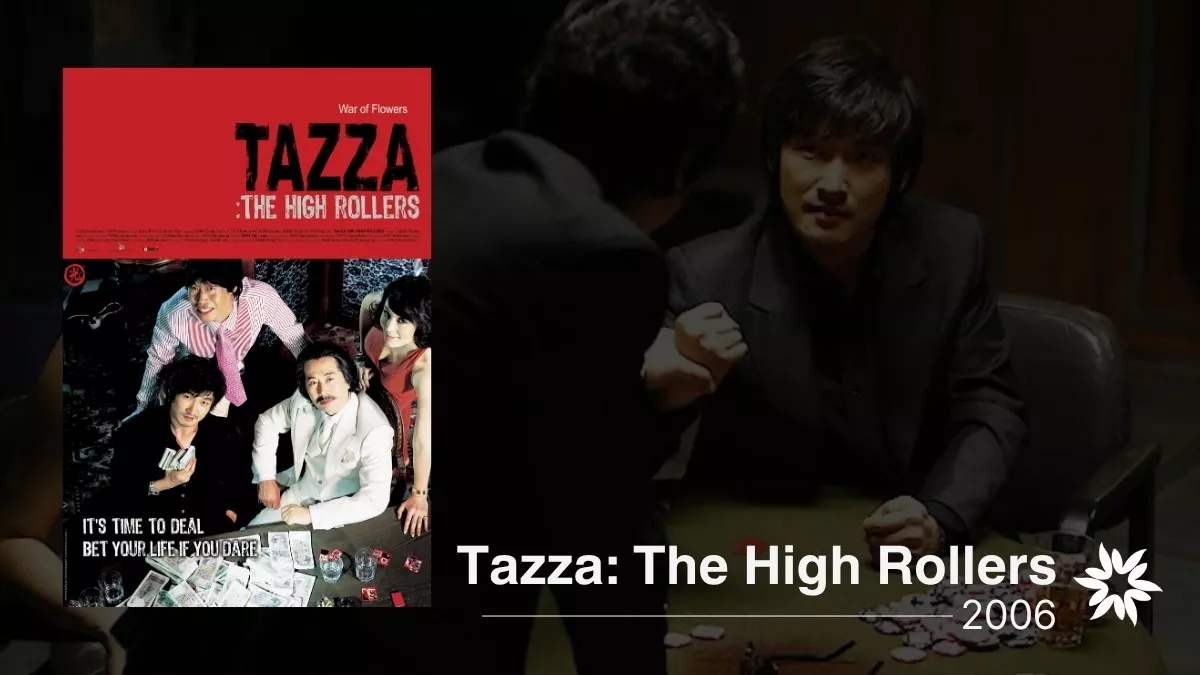
If most gambling movies are about poker chips and roulette wheels, Tazza: The High Rollers feels like stepping onto another planet — one where the stakes are just as high, but the rules, rhythms, and rituals are uniquely Korean.
Directed by Choi Dong-hoon, Tazza plunges deep into the gritty underworld of Hwatu, a traditional Korean card game that’s all about fast thinking, sharper instincts, and a healthy dose of deception. To outsiders, Hwatu can seem like chaos — a blur of colorful cards and rapid-fire gestures. But Tazza makes it thrillingly clear: underneath the surface, there’s a brutal logic, a hidden choreography where one wrong move can cost you everything.
Unlike a lot of gambling films, Tazza doesn’t just flirt with authenticity — it’s steeped in it. The movie meticulously lays out the strategies, the cheats, the tiny signals and double-crosses that separate winners from suckers. As The Korea Timesnoted in a 2024 anniversary piece, “Tazza captures the complexity of Hwatu with a reverence usually reserved for chess in Western cinema” (The Korea Times, 2024).
But it’s not just about the game — it’s about the people who live and die by it. Con men, hustlers, tragic gamblers chasing one last miracle. The film’s crime-drama framework heightens the tension, but never at the expense of character. These are desperate, flesh-and-blood players, not cardboard villains.
The cultural specificity of Tazza also gives it a rare flavor. It’s a reminder that gambling isn’t a monolith; it’s a global language spoken with different accents, different rules, and different superstitions. And yet, whether it’s Las Vegas or Seoul, the core truth remains: the house always wins—unless you learn how to cheat better than everyone else.
9. Lucky You (2007)
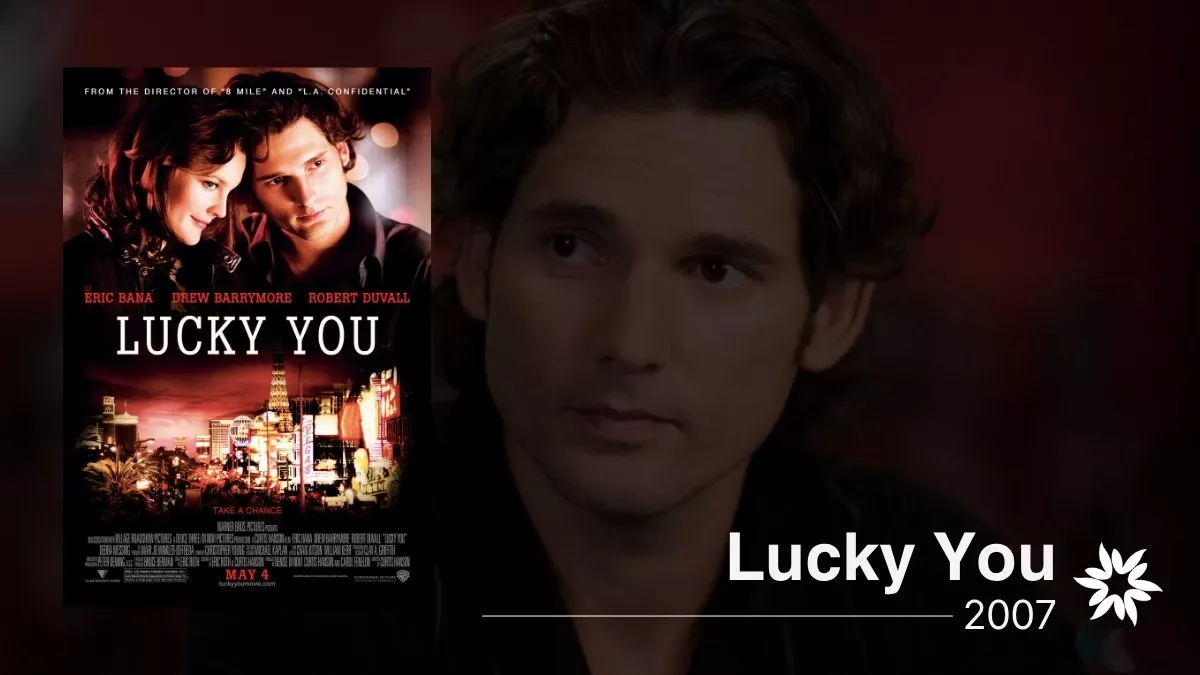
Most movies about poker want to glam it up — fast cars, faster women, a jackpot around every corner. Lucky You walks a different road. Set against the neon-lit backdrop of the 2003 World Series of Poker, it doesn’t sell you the dream. It shows you the grind.
Directed by Curtis Hanson, Lucky You follows Huck Cheever (Eric Bana), a gifted but self-destructive player trying to win big while battling personal demons — and, not coincidentally, his estranged father, a poker legend played by Robert Duvall. It’s a father-son story wearing a poker movie’s skin, and while the emotional beats can sometimes feel uneven, the gambling world it portrays is strikingly on point.
Part of that authenticity comes from the film’s attention to detail. Real poker pros like Doyle Brunson, Johnny Chan, and Sam Farha make appearances, and the tournament settings — from the grimy satellite events to the glittering final tables — feel lived-in rather than staged. As Business Insider pointed out in a 2025 feature, “Lucky You might have fumbled the romance, but it got the poker exactly right — the long hours, the mind games, the small brutalities that chip away at you long before you go broke”.
Of course, not everything lands. The romantic subplot between Huck and Billie (Drew Barrymore) feels tacked on, like someone was worried audiences couldn’t handle a movie that was just about cards and crushed dreams. Critics at Toons Mag and Wikipedia both noted that the love story dragged what could have been a lean, razor-sharp character study into more conventional territory.
Still, for all its flaws, Lucky You stands out because it respects poker as a brutal profession, not a fantasy. And in a genre full of fairy tales, that counts for a lot.
10. Going for Broke (2003)
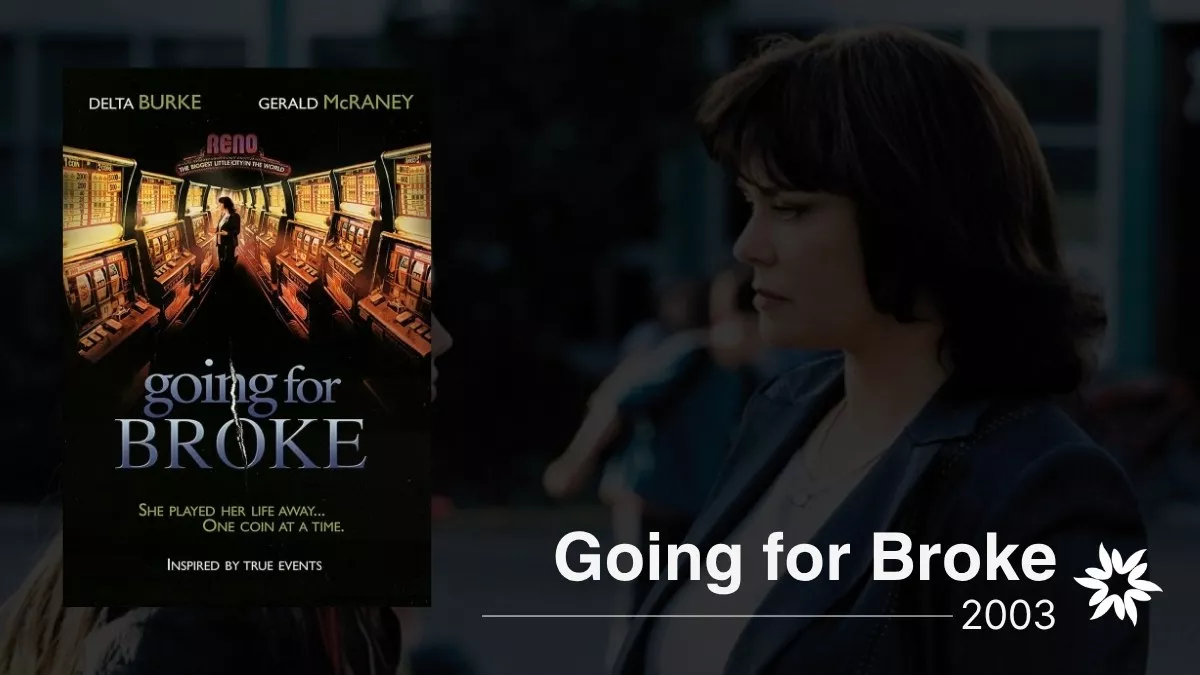
You won’t find flashing lights, tuxedos, or high-roller suites in Going for Broke. This made-for-TV movie takes the glamour out of gambling and replaces it with something far more unsettling: quiet, everyday desperation.
Based on a true story, Going for Broke follows Laura Bancroft, a respected charity executive who spirals into gambling addiction so severely that she ends up embezzling hundreds of thousands of dollars from her own organization. It’s a story less about the thrill of the game and more about the slow erosion of everything else — career, family, dignity — until nothing’s left.
Delta Burke, best known for lighter roles, delivers a surprisingly raw performance as Bancroft. She plays the character not as a villain, but as a woman genuinely trying — and failing — to outrun her compulsion. According to a 2024 retrospective from Screen Rant, the film’s strength lies in its refusal to paint addiction in broad strokes: “It’s not a moral failure. It’s a drowning you can’t swim out of”.
Unlike more sensationalized depictions, Going for Broke focuses on the mundane horror of addiction: missed birthdays, mounting lies, the slow tightening of a noose woven from shame and debt. It also doesn’t let the larger systems off the hook. As experts from the National Council on Problem Gambling noted in a 2025 study, societal support for gambling addiction recovery still lags far behind treatment for substance abuse.
Ultimately, Going for Broke succeeds because it tells a quieter, sadder truth: not every gambling story ends in flashing cameras or dramatic final hands. Sometimes it just ends with a knock on the door, an empty bank account, and a family you can’t look in the eye anymore.
Why These Stories Still Matter
What ties these ten films together isn’t just the cards, dice, or chips — it’s the honesty. Whether peeling back the glamor to reveal the grind or diving deep into the psychology of risk, each film respects the brutal, beautiful complexity of gambling. They don’t just tell stories about luck; they tell stories about life when luck runs out.
















